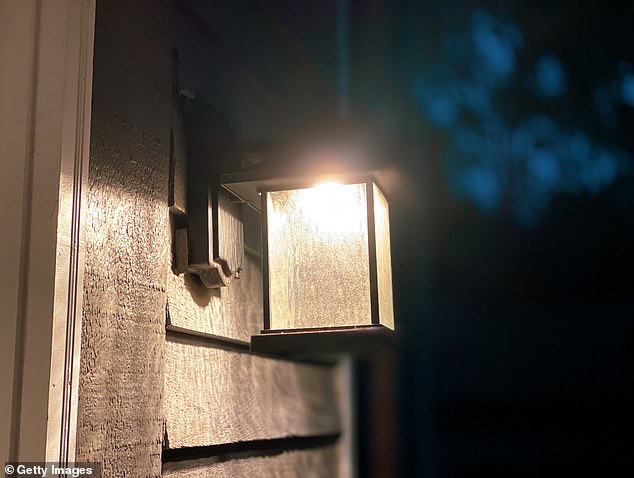As summer draws to a close and the cooler temperatures of autumn slowly set in, homes across the UK become prime targets for spiders seeking warmth and shelter.
Experts have shared their tips with homeowners on how to bolster their defenses against spiders, especially with the arachnids’ mating season on the horizon.
Pest expert John Stewart, a member of the Pelsis UK technical team, has offered his timely advice on how to keep the eight-legged invaders at bay.
According to Stewart, there’s one common mistake many of us are guilty of that could unintentionally make homes more attractive to spiders: excessive lighting inside and outside the property.
Talking with The sunStewart said: ‘While spiders themselves are not attracted to light sources, many of the insects they feed on are, which in turn attracts them to outdoor lighting.
As summer draws to a close and the cooler temperatures of autumn slowly set in, homes across the UK are set to become prime targets for spiders seeking warmth and shelter.
‘Reducing outdoor lighting, especially at night, can help reduce the number of insects, and therefore spiders, around your home.’
Stewart’s comments come as spiders “the size of rats” are making a comeback in the UK following a successful conservation project.
Raft spiders, which spin webs as big as pizzas (25cm), were on the brink of extinction in the UK in 2010.
At that time, the spider was restricted to just three sites in the UK, in Suffolk and Sussex, and only a few spiders remained.
However, thanks to a successful breeding campaign, numbers have increased to 3,750 breeding females across 12 sites in Norfolk alone.
The species has distinctive white or cream stripes running down the side of the abdomen.
Raft spiders are semi-aquatic and can run along the surface of the water to capture their prey.
While these spiders are mainly found in specific regions, the advice to keep homes spider-free applies to the thousands of varieties found across the UK.

According to pest expert John Stewart, a common mistake could also unintentionally make homes more attractive to spiders: excessive lighting inside and outside your property.

Some experts suggest using peppermint and chestnut oils in the home, as their strong scents are believed to repel spiders.
In addition to reducing lighting, Stewart recommends other practical measures, such as sealing windows and keeping the house clean.
Some experts also suggest using peppermint and horse chestnut oils, as their strong scents are believed to repel spiders.
Spiders sense their environment through taste and smell using their legs, so these potent odors can be particularly unpleasant.
Meanwhile, a brave arachnophobe overcame her fear of creepy crawlies by letting “Britain’s most dangerous spider” hatch hundreds of babies in her home.
Michelle Preston, 46, confessed she was “really scared of spiders” until she saw a fake window hanging upside down from her bathroom vent.
Although the eight-legged creature, also known as Steatoda nobilis, is known for inflicting some gruesome wounds, Michelle decided to let the spider stay where it was.

